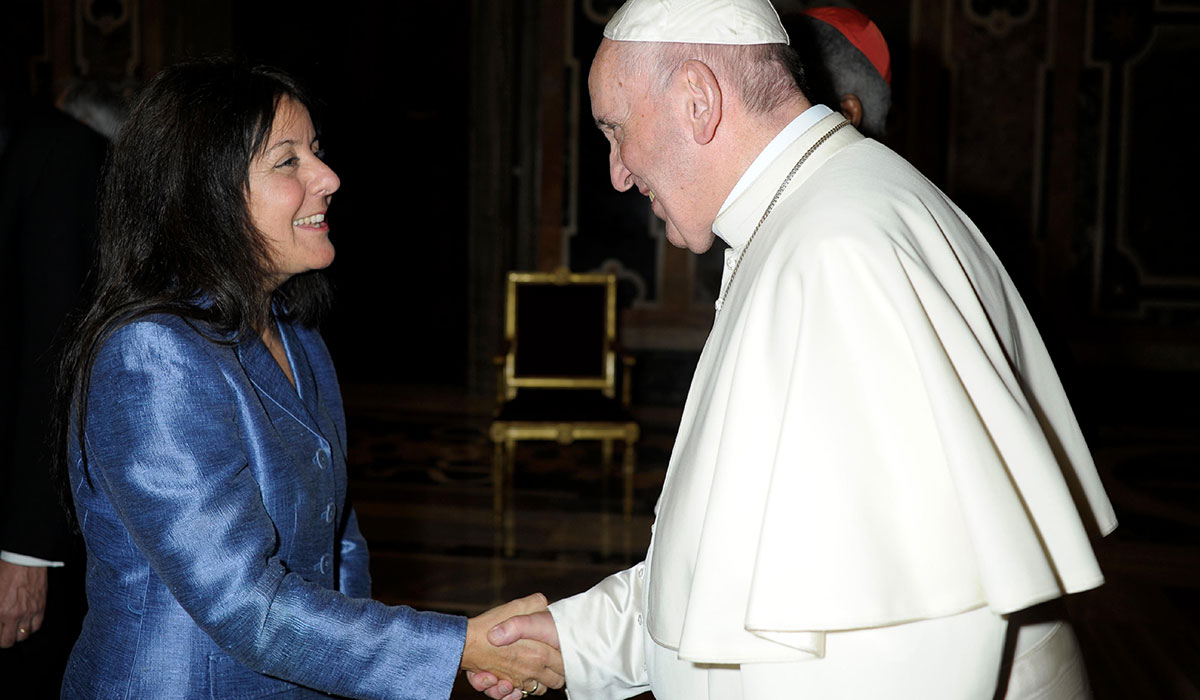

“One of the reasons I love being here at Catholic University,” Dr. Maryann Cusimano Love began, “is that we are really at the intersection of Church and State.”
Love is a professor of International Relations in the Politics Department. Her work takes her all over the world as she examines the impact of religious actors on world politics and foreign policy. One of her goals is to show that religious actors aren’t always the “bad guys and boogeymen” they are made out to be in academia or the media.
“Religious actors are often looked upon very negatively because of the prevalence of male clerical leaders, for example,” said Love. “But the research I’ve done shows that there are often lots of women in leaderships roles. They’re heads of universities, heads of hospitals and health care systems, heads of schools ... and those organizations can actually be really important for women’s empowerment — educating women in areas they wouldn’t otherwise have access to education, providing them healthcare and health services — so in some of the most fundamental ways, religious actors can actually be extremely empowering, but if the metric you’re using is, “Will there be a female pope?”, then you’re going to miss that action.”
“I try to engage my students in the work I’m doing … Our Catholic University students got to participate in this Vatican conference with [all of these people] and got to ask them questions and make interventions.”
Last spring, while Love was on Sabbatical, she participated in the United Nations first ever negotiation on the prohibition of nuclear weapons. Love represented the Holy See, a leader in the negotiations that helped to illustrate the humanitarian impact of nuclear weapons. When the treaty was ratified and signed by 120 countries in September 2017, the Holy See marked the occasion with a special conference whose invite list included ambassadors, cardinals, archbishops, and half a dozen Nobel laureates from all over the world. Love remembered her students at Catholic University and brought a delegation of them over for the conference.
“I’ve been very active in experiential education,” said Love. “I try to engage my students in the work I’m doing … Our Catholic University students got to participate in this Vatican conference with [all of these people] and got to ask them questions and make interventions. That’s the kind of opportunity that I really enjoy, to be able to bring those real life experiences into the classrooms and be able to bring the students to those types of experiences, so they can see what it is like to really do a politics major, not just to talk about it.”
Love said it’s particularly important for politics students to look up from the textbooks.
“Politics is a social discipline, that’s why it’s in the is the social sciences. While it’s important to know the trend lines, to look at the empirical research, the statistical studies, to know the context, a lot of politics is about building relationships … And we have such an opportunity here at CUA, being right here in Washington, D.C. I think our location is a real value added that [other schools] don’t have. It gives us the opportunity to make our mission statement real, to be of service to the Church, to the nation, and to the world. ”